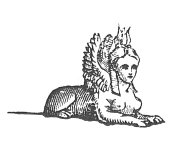
Masonic, Occult and Esoteric Online Library
The Virgin of the World
By Hermes Mercurius Trismagistus tr. A. Kingsford, E Maitland
The Definitions of Asclepios – Part IV
THIS discourse ends where it began, with the praise of the Supreme Being, and afterwards of the most holy kings by whom we obtain peace. So that having commenced by celebrating the Almighty greatness, it is to this greatness that we return in terminating our speech. Even as the sun nourishes all germs, and receives the promise of the fruits which his rays, like divine hands, gather for the God; even as these shining hands collect likewise the sweet odours of plants, so also we, after having begun by the adoration of the Most High and the effluence of His Wisdom, after having gathered into our souls the fragrance of these heavenly flowers, must now collect the sweetness of this sacred harvest which He, with fruitful rains, will bless. But even if we had ten thousand mouths and ten thousand voices wherewith to glorify the God of all purity, the Father of Souls, we should yet be powerless to celebrate Him worthily; for new-born babes cannot, indeed, rightly extol their father, yet since they do their utmost, they obtain indulgence. Or rather, the glory of God is seen in this, that He is superior to all creatures; He is the Beginning, He is the End, the Midst, and the Continuance of their Praise; in Him they acknowledge their Parent, all-powerful and infinite.
It is the same also with our king. We, who are his children, love to extol him; and we ask indulgence of our father, even when, before we asked, it was granted to us. A father, far from turning away from his little ones, and from his new-born infants, because of their feebleness, rejoices to see himself recognised by them. The universal gnosis which communicates life to all, and enables us to bless God, is itself a gift of God. For God, being good, has in Himself the fulness of all perfection; being immortal, He contains in Himself immortal tranquillity, and His eternal power sends forth into this world a salutary benediction. In the hierarchy which He contains there are no differences nor variations; all the beings in Him are wise, the same providence is in all, the same intelligence governs them, the same sentiment impels them to mutual goodness, and the same love produces among them universal harmony.
Therefore, let us bless God and after Him the kings who from Him receive the sceptre. And having inaugurated the praises of the kings, let us also glorify piety towards the Supreme. May He instruct us how to bless Him, and may His aid assist us in this study. May our first and chief endeavour be to celebrate the fear of God and the praise of the Kings. For to them is due our gratitude for the fruitful peace which by their means we enjoy. It is the virtue of the King, and his name only which obtains peace; he is called King because he advances chief in royalty and power, and because he reigns by reason and peace. He is above all barbarian royalties, his very name is a symbol of peace. The name alone of the King suffices often to repel the foe. His images are as beacons of safety in the tempest. For the very image of our King procures victory, confers security, and renders us invulnerable.
[Patrizzi hesitates to ascribe the fragment entitled "Asclepios to King Ammon" to the disciple of Hermes, thinking it unworthy of one who had enjoyed the instructions of so great a man. Dr. Menard points out that despite the tirade against the Greeks and the Greek tongue in the first section of this fragment, it was undoubtedly originally written in that very language, as is proved by the reference made in the third section to βασιλε?ς (the king), and the etymological derivation of the word from (βα?νειν (to advance), and also by the allusions to Phidias, and to Eunomios, a musician of Locris, in the second section. The description of the sun as a charioteer, and the passing reference to "him who bears the crowns," are also both suggested by Greek usages. In Egypt the sun was always represented as carried on a barge or floating raft along the waters of the Nile. Dr. Menard inclines, therefore, to believe that the depreciatory remarks concerning the Greeks must have been introduced by a fraudulent hand, in order to mislead the reader in regard to the true origin of the fragment. Dr. Menard is, moreover, of opinion that the king, or kings spoken of in the fragment, are the imperial brothers Valens and Valentinian. I venture to differ from this view, and believe, rather, that the writer, whether indeed the true Asclepios or not, certainly uses the words "king," "kings," and "royalties" in an occult sense. For if he intended, as Dr. Menard supposes, a mere commonplace eulogium on a reigning monarch or monarchs--whether Ammon, or Valens and his brother--to what purpose should he set out by declaring his writings to be "truly occult and containing a hidden sense"? All that is said in the fragment concerning kingship is perfectly applicable to the mystic Osiris, the nature of whose royalty has been elsewhere explained. Osiris is the reflection and counterpart in Man, of the supreme Lord of the Universe, the ideal type of humanity; hence the soul, or essential ego, presenting itself for judgment in the spiritual world, is in the Egyptian Ritual of the Dead, described as "an Osiris." It is to this Osiris, or king within us, our higher Reason, the true Word of God, that we owe perpetual reverence, service, and faithful allegiance.
A.K.]


